BEIRUT: Hezbollah’s head Hassan Nasrallah was unreachable following Israel’s strikes on Beirut’s southern suburbs on Friday evening, a source close to the Lebanese armed group told Reuters.
Hours after the strikes, Hezbollah had not made a statement on his fate. A source close to Hezbollah told Reuters Nasrallah was alive and Iran’s Tasnim news agency also reported he was safe. A senior Iranian security official told Reuters Tehran was checking his status.
Communication lost with Hassan Nasrallah, says source close to Hezbollah
https://arab.news/8ncj4
Communication lost with Hassan Nasrallah, says source close to Hezbollah

Nostalgia, relief and loss as some Syrians mark their first Ramadan back home in years

- They enjoy family reunions but many also face challenges as they adjust to a country ravaged by a prolonged civil war and now grappling with a complex transition
- Aabour – one of the more than 370,000 Syrians the United Nations’ refugee agency, UNHCR, says have returned to the country since Assad’s ouster – delights in hearing the call to prayer from mosques signaling the end of the daily fast
DARAYA, Syria: When Mariam Aabour learned of the ouster of Syrian leader Bashar Assad, she shed tears of joy. But as the time came to return to her homeland from Lebanon – where she fled years earlier – Aabour felt torn.
She was happy about the homecoming, but sad to leave behind a son and a stepson who remained in Lebanon to work and pay off family debts. Months before her return, Aabour’s father died in Syria without her seeing him. Her Syrian home has been destroyed and there’s no money to rebuild, she said.
Thus it’s been bittersweet experiencing her first Ramadan – the Muslim holy month – since her return.
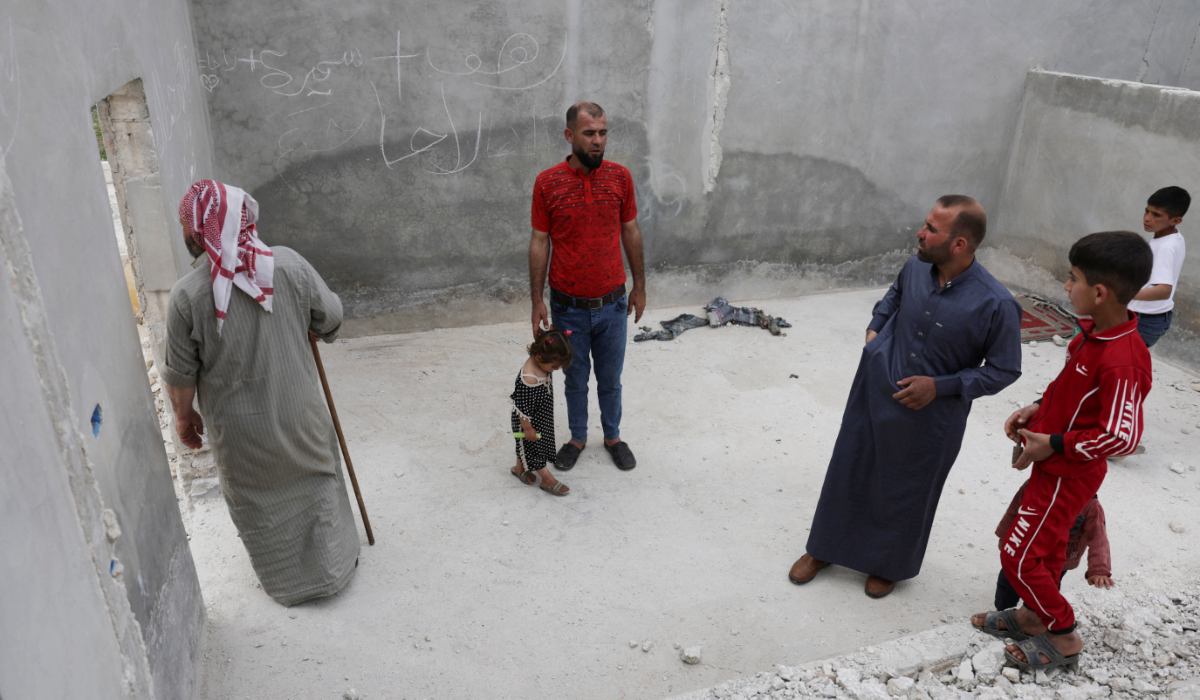
“We’ve all lost dear ones,” she said. “Even after our return, we still cry over the tragedies that we’ve lived through.”
As they spend their first Ramadan in years in their homeland, many Syrians who’ve recently trickled back in from abroad have been celebrating the end of the Assad family’s rule in December after a fast-paced rebel offensive. They are relishing some new freedoms and savoring some old traces of the lives they once knew.
They enjoy family reunions but many also face challenges as they adjust to a country ravaged by a prolonged civil war and now grappling with a complex transition. As they do, they grieve personal and communal losses: Killed and missing loved ones, their absence amplified during Ramadan. Destroyed or damaged homes. And family gatherings shattered by the exodus of millions.
A time for daily fasting and heightened worship, Ramadan also often sees joyous get-togethers with relatives over food and juices.
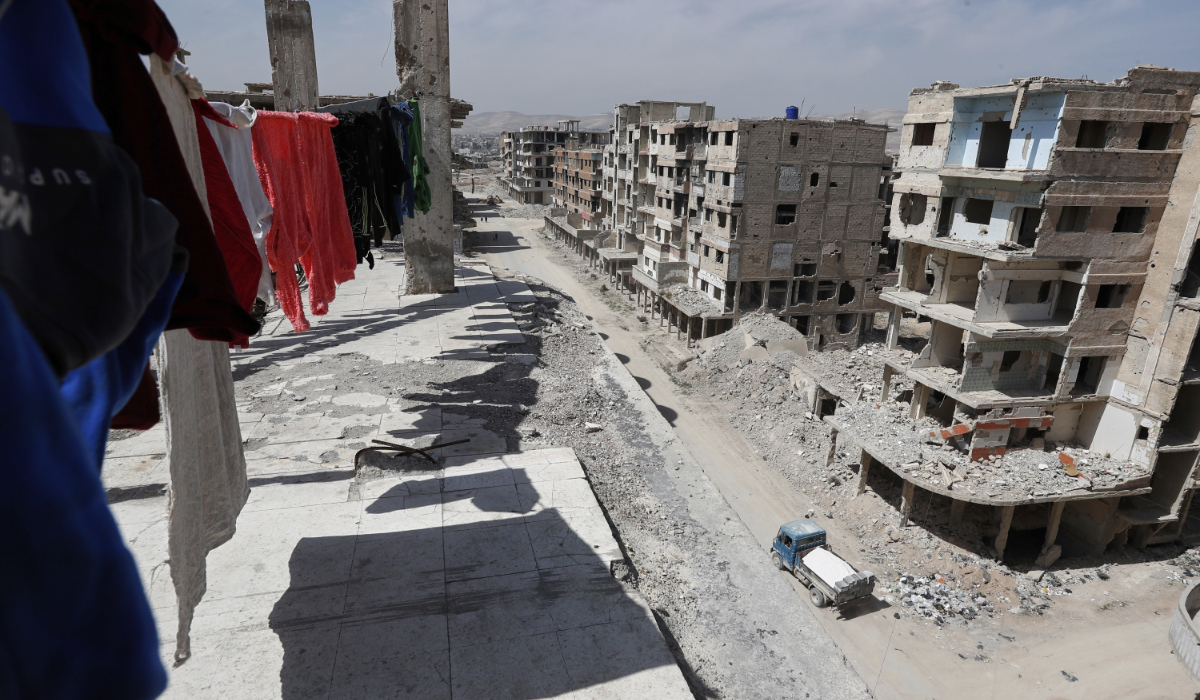
Aabour – one of the more than 370,000 Syrians the United Nations’ refugee agency, UNHCR, says have returned to the country since Assad’s ouster – delights in hearing the call to prayer from mosques signaling the end of the daily fast. In her Lebanon neighborhood, she said, there were no nearby mosques and she relied on phones to know when to break the fast.
The hardest part, she added, is sitting for the fast-breaking meal known as “iftar” without some loved ones, including her father and a son, who she said was killed before the family fled Syria.
She bitterly recalled how her child, who she said was about 10 when killed, liked a rice and peas dish for iftar and would energetically help her, carrying dishes from the kitchen.
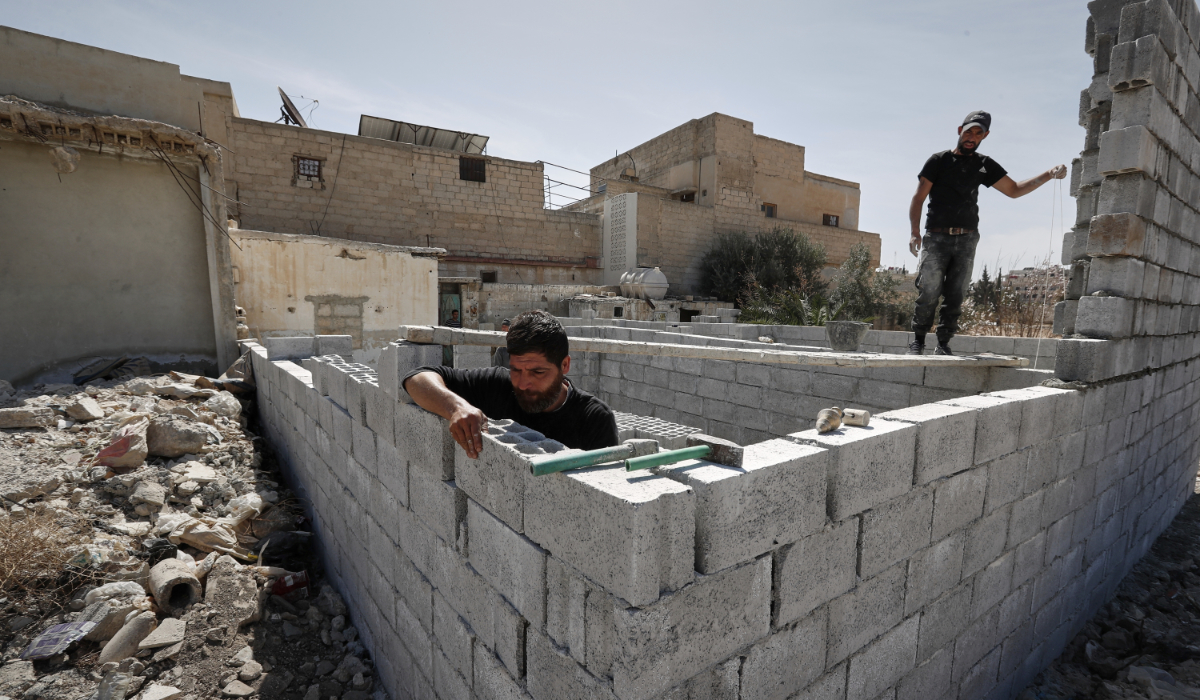
“I used to tell him, ‘You’re too young,’ but he would say, ‘No, I want to help you,’” she said, sitting on the floor in her in-laws’ house which her family now shares with relatives.
Faraj Al-Mashash, her husband, said he’s not currently working, accumulating more debt and caring for an ill father.
The family borrowed money to fix his father’s home in Daraya. It was damaged and looted, but still standing.
Many Daraya homes aren’t.
Part of Rural Damascus and known for its grapes and its furniture workshops, Daraya was one of the centers of the uprising against Assad. The conflict devolved into armed insurgency and civil war after Assad crushed what started as largely peaceful protests; this Ramadan, Syrians marked the 14th anniversary of the civil war’s start.
Daraya suffered killings and saw massive damage during fighting. It endured years of government besiegement and aerial campaigns before a deal was struck between the government and rebels in 2016 that resulted in the evacuation of fighters and civilians and control ceded to the government.
Today, in parts of Daraya, children and others walk past walls with gaping holes in crumbling buildings. In some areas, a clothesline or bright-colored water tank provides glimpses of lives unfolding among ruins or charred walls.
Despite it all, Al-Mashash said, it’s home.
“Isn’t Daraya destroyed? But I feel like I am in heaven.”
Still, “there’s sadness,” he added. “A place is only beautiful with its people in it. Buildings can be rebuilt, but when a person is gone, they don’t come back.”
In Lebanon, Al-Mashash struggled financially and was homesick for Daraya, for the familiar faces that used to greet him on its streets. Shortly after Assad’s ouster, he returned.
This Ramadan, he’s re-lived some traditions, inviting people for iftar and getting invited, and praying at a mosque where he has cherished memories.
Some of those who had left Daraya, and now returned to Syria, say their homes have been obliterated or are in no condition for them to stay there. Some of them are living elsewhere in an apartment complex that had previously housed Assad-era military officers and is now sheltering some families, mostly ones who’ve returned from internal displacement.
The majority of those who’ve returned to Syria since Assad’s removal came from countries in the region, including Lebanon, Jordan and Turkiye, said Celine Schmitt, UNHCR’s spokesperson in Syria.
A main security fear for returnees is unexploded mines, Schmitt said, adding UNHCR provides “mine awareness sessions” in its community centers. It also offers legal awareness for those needing IDs, birth certificates or property documents and has provided free transportation for some who came from Jordan and Turkiye, she said.
The needs of returnees, so far a fraction of those who’ve left, are varied and big – from work and basic services to house repairs or construction. Many, Schmitt said, hope for financial help to start a small business or rebuild, adding that more funding is needed.
“We’re calling on all of our donors,” she said. “There’s an opportunity now to solve one of the biggest displacement crises in the world, because people want to go back.”
Many of those who haven’t returned cite economic challenges and “the huge challenges they see in Syria” as some of the reasons, she said.
In January, UN High Commissioner for Refugees Filippo Grandi said living conditions in the country must improve for the return of Syrians to be sustainable.
Umaya Moussa, also from Daraya, said she fled Syria to Lebanon in 2013, returning recently as a mother of four, two of whom had never seen Syria before.
Moussa, 38, recalls, at one point, fleeing an area while pregnant and terrified, carrying her daughter and clutching her husband’s hand. The horrors have haunted her.
“I’d remember so many events that would leave me unable to sleep,” she said. “Whenever I closed my eyes, I would scream and cry and have nightmares.”
In Lebanon, she lived for a while in a camp, where she shared the kitchen and bathroom with others. “We were humiliated ..., but it was still better than the fear we’ve lived through.”
She’d yearned for the usual Ramadan family gatherings.
For the first iftar this year, she broke her fast with her family, including brothers who, she said, as fighters against the Assad government, had previously moved to then rebel-controlled Idlib province.
Missing from the Ramadan meal was her father who died while Moussa was away.
Like Moussa, Saeed Kamel is intimately familiar with the pain of a joy incomplete. This Ramadan, he visited the grave of his mother who had died when he was in Lebanon.
“I told her that we’ve returned but we didn’t find her,” he said, wiping away tears.
And it wasn’t just her. Kamel had been hopeful that with Assad gone, they would find a missing brother in his prisons; they didn’t.
Kamel had vowed never to return to a Syria ruled by Assad, saying he felt like a stranger in his country. His home, he said, was damaged and looted.
But despite any difficulties, he held out hope. At least, he said, “the next generation will live with dignity, God willing.”
Kamel fondly recalled how – before their worlds changed – his family would exchange visits with others for most of Ramadan and neighbors would send each other iftar dishes.
“Ramadan is not nice without the family gatherings,” he said. “Now, one can barely manage.”
He can’t feel the same Ramadan spirit as before.
“The good thing,” he said, “is that Ramadan came while we’re liberated.”
Syria’s president Al-Sharaa forms new transitional government

- The cabinet included Yarub Badr, an Alawite who was named transportation minister, while Amgad Badr, who belongs to the Druze community, will lead the agriculture ministry
Syrian President Ahmed Al-Sharaa announced a transitional government on Saturday, appointing 23 ministers in a broadened cabinet seen as a key milestone in the transition from decades of Assad family rule and to improving Syria’s ties with the West.
Syria’s new Sunni Islamist-led authorities have been under pressure from the West and Arab countries to form a government that is more inclusive of the country’s diverse ethnic and religious communities.
That pressure increased following the killings of hundreds of Alawite civilians — the minority sect from which toppled leader Bashar Assad hails — in violence along Syria’s western coast this month.
The cabinet included Yarub Badr, an Alawite who was named transportation minister, while Amgad Badr, who belongs to the Druze community, will lead the agriculture ministry.
Hind Kabawat, a Christian woman and part of the previous opposition to Assad who worked for interfaith tolerance and women’s empowerment, was appointed as social affairs and labor minister.
Mohammed Yosr Bernieh was named finance minister.
It kept Murhaf Abu Qasra and Asaad Al-Shibani, who were already serving as defense and foreign ministers respectively in the previous caretaker cabinet that has governed Syria since Assad was toppled in December by a lightning rebel offensive.
Sharaa also said he established for the first time a ministry for sports and another for emergencies, with the head of a rescue group known as the White Helmets, Raed Al-Saleh, appointed as the minister of emergencies.
In January, Sharaa was named as interim president and pledged to form an inclusive transitional government that would build up Syria’s gutted public institutions and run the country until elections, which he said could take up to five years to hold.
The government will not have a prime minister, with Sharaa expected to lead the executive branch.
Earlier this month, Syria issued a constitutional declaration, designed to serve as the foundation for the interim period led by Sharaa. The declaration kept a central role for Islamic law and guaranteed women’s rights and freedom of expression.
Does military’s recapture of Khartoum mark a crossroads in Sudan’s conflict?

- General Al-Burhan’s forces control key sites in the capital, including the airport, which will be critical for humanitarian relief
- Despite the losses in Khartoum, his foes have entrenched themselves in Darfur, maintaining a power base and foreign backing
LONDON: Sudan’s de-facto military ruler visited the presidential palace in Khartoum on Wednesday after his forces recaptured the city from a rival paramilitary group. Whether the development will prove to be a decisive moment in the conflict that has devastated the country since April 2023 remains to be seen.
Khartoum, once one of East Africa’s fastest-growing capitals, is today a ghost city, its residents displaced and its basic infrastructure in ruins. “It’s heartbreaking to see people dying in huge numbers from hunger in Sudan, once the breadbasket of East Africa,” Mathilde Vu, a Sudan-based aid worker with the Norwegian Refugee Council, told Arab News.

According to Vu, the humanitarian response in the capital depends heavily on grassroots efforts. “Local responders are the one hope of Sudan,” she said. “They operate without logos, without any resources, and yet they’ve organized evacuations, run soup kitchens, offered psychosocial support, even repaired water systems.”
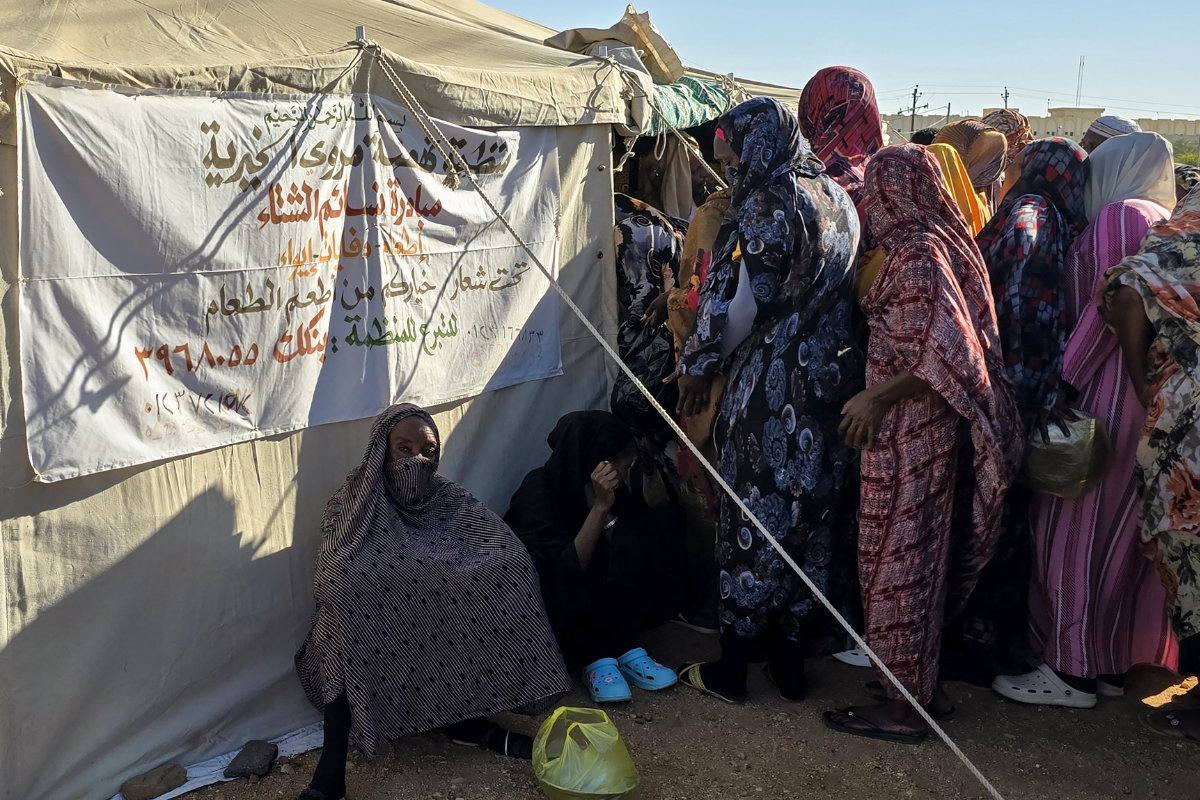
But these efforts are fragile and increasingly under threat, with at least 10 local responders killed during intensified fighting in March. “If one local responder dies, one kitchen is closed. And with that, entire families are left without food,” Vu said.
The Sudanese Armed Forces have in recent days consolidated control not just over the presidential palace, but also the central bank, the airport and the strategic Al-Yarmouk weapons manufacturing complex, having dislodged its adversary, the Rapid Support Forces.
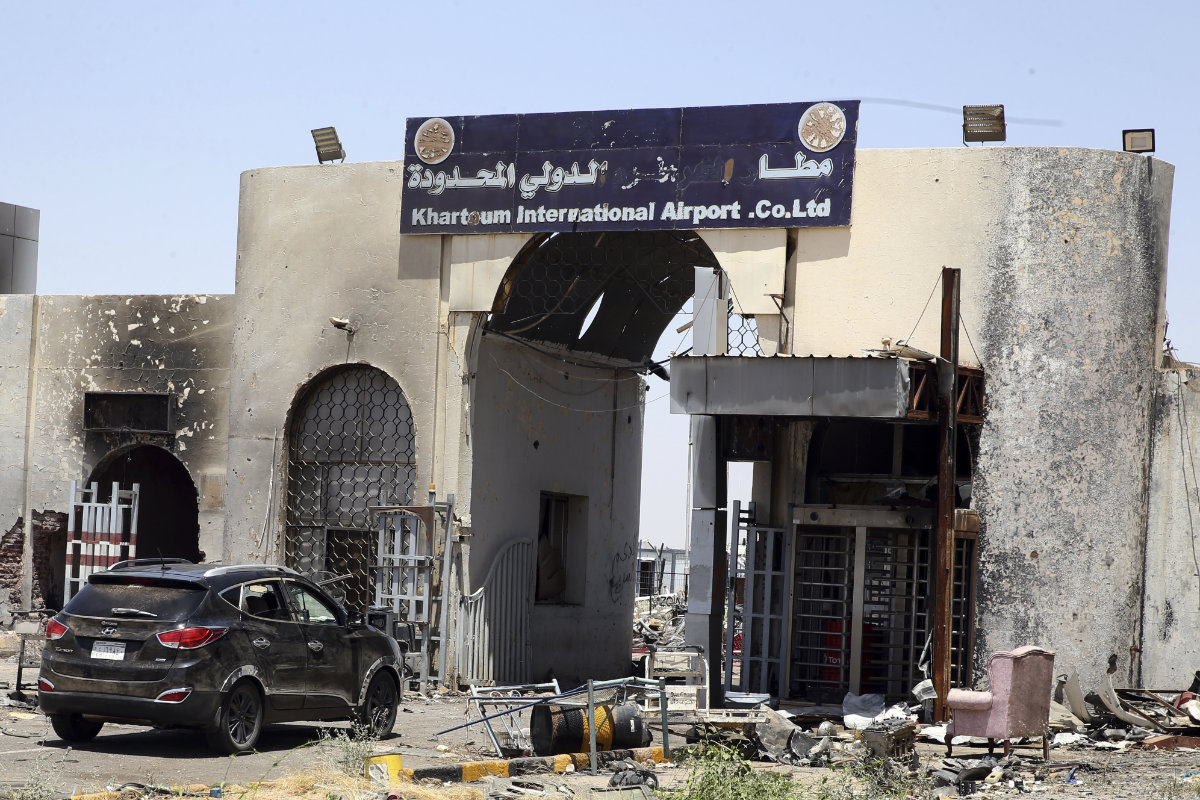
These are symbolic gains. But whether they will translate into stability or reconstruction is far from certain.
Abiol Lual Deng, a South Sudanese-American political scientist, cautions against assuming that the SAF’s return to the city signals a new era. “This is a city where people died from starvation and infectious disease — not just bullets,” she told Arab News.
“The fighting disrupted every part of urban life. Shops closed, fuel ran out, water became contaminated, and no one could move because of snipers and shelling.”
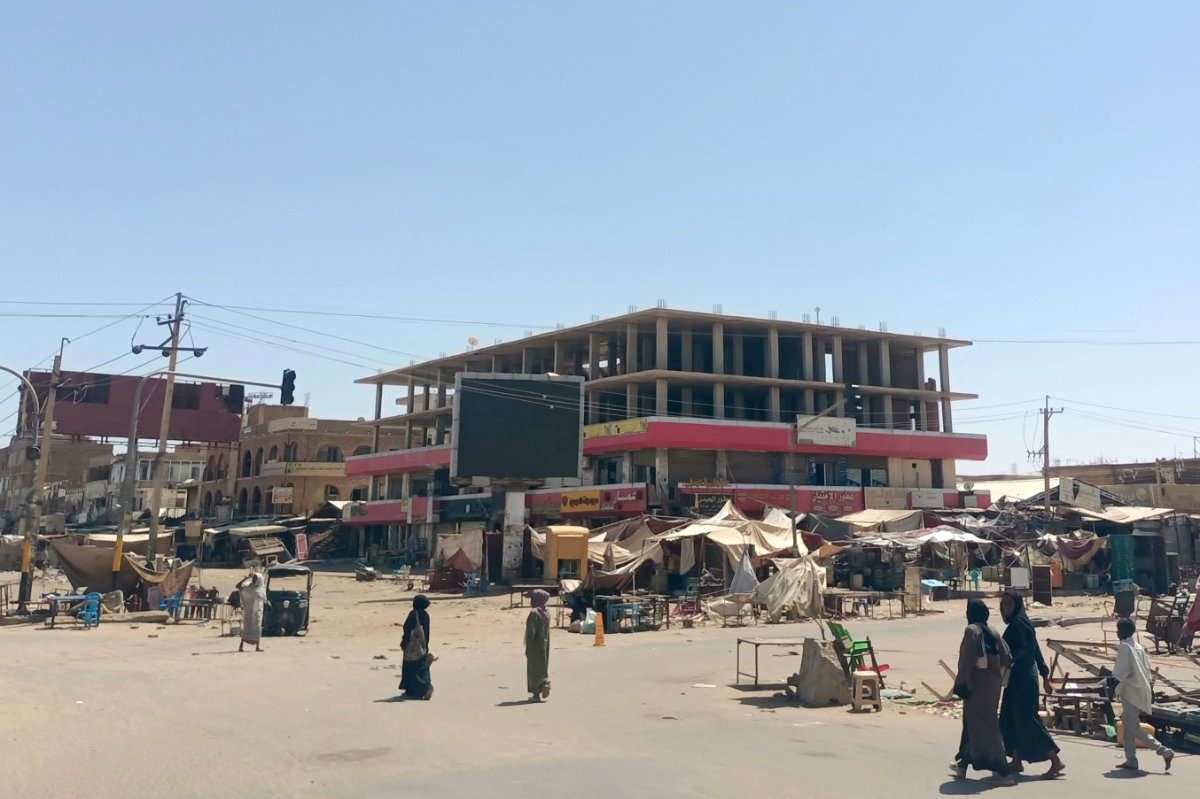
She added: “Now that SAF has retaken key areas like the airport, we might see some humanitarian aid trickling back in, especially for the wounded and those in critical need. But the scale of need is just unfathomable. Two-thirds of Sudan’s population requires assistance. This is not something a few aid flights can solve.”
The destruction of Khartoum’s civilian infrastructure has been especially devastating because of the city’s role in the national economy. Once home to the country’s key financial institutions, markets, and trade corridors, Khartoum’s paralysis has sent ripples across Sudan and beyond.
The SAF’s ability to maintain control over the capital will depend not just on military gains, but also on whether it can stabilize these essential services.
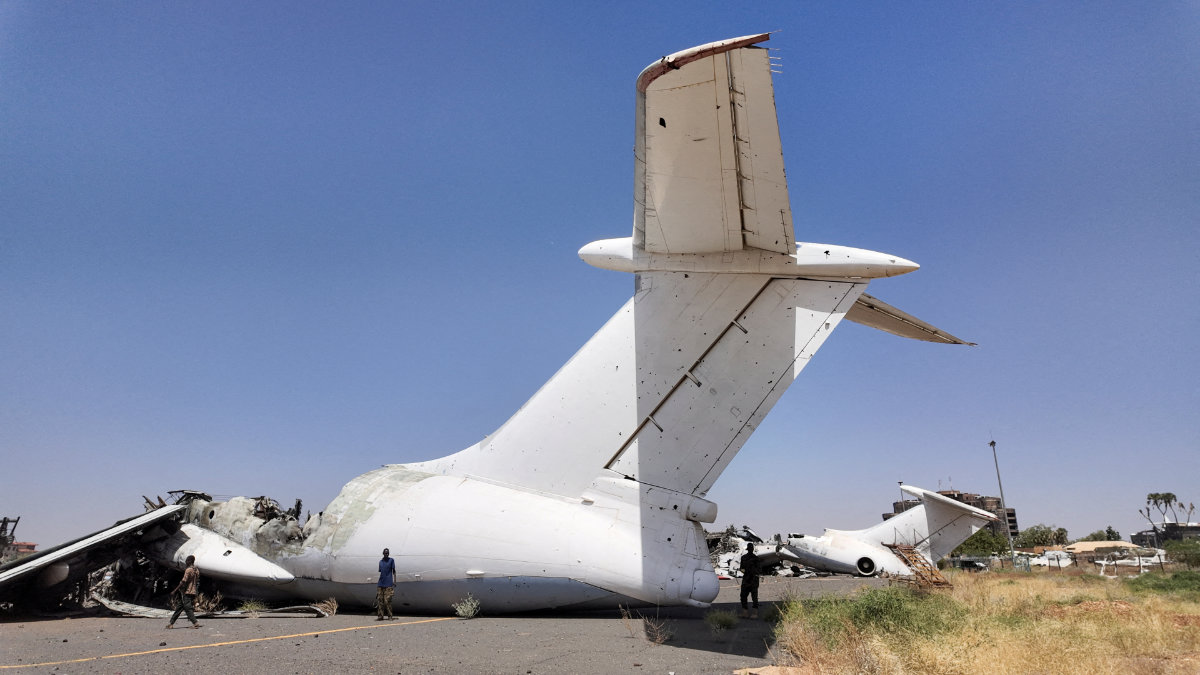
Dallia Abdelmoniem, a Sudanese analyst with deep experience in civil society networks, points out that many displaced civilians are already planning to return — despite the lack of security guarantees.
“For many Sudanese, they don’t have the privilege to wait for full reconstruction,” she told Arab News. “They’re returning to neighborhoods where there’s no running water, no banks, no healthcare. Civil society will be forced to fill the vacuum again.”
Yet any suggestion that the war is winding down would be premature. Having withdrawn from Khartoum, the RSF has entrenched itself in Darfur and other regions. There, it continues to function as a parallel authority, with reports of its leader, Mohamed Hamdan Dagalo, making diplomatic overtures to regional leaders.
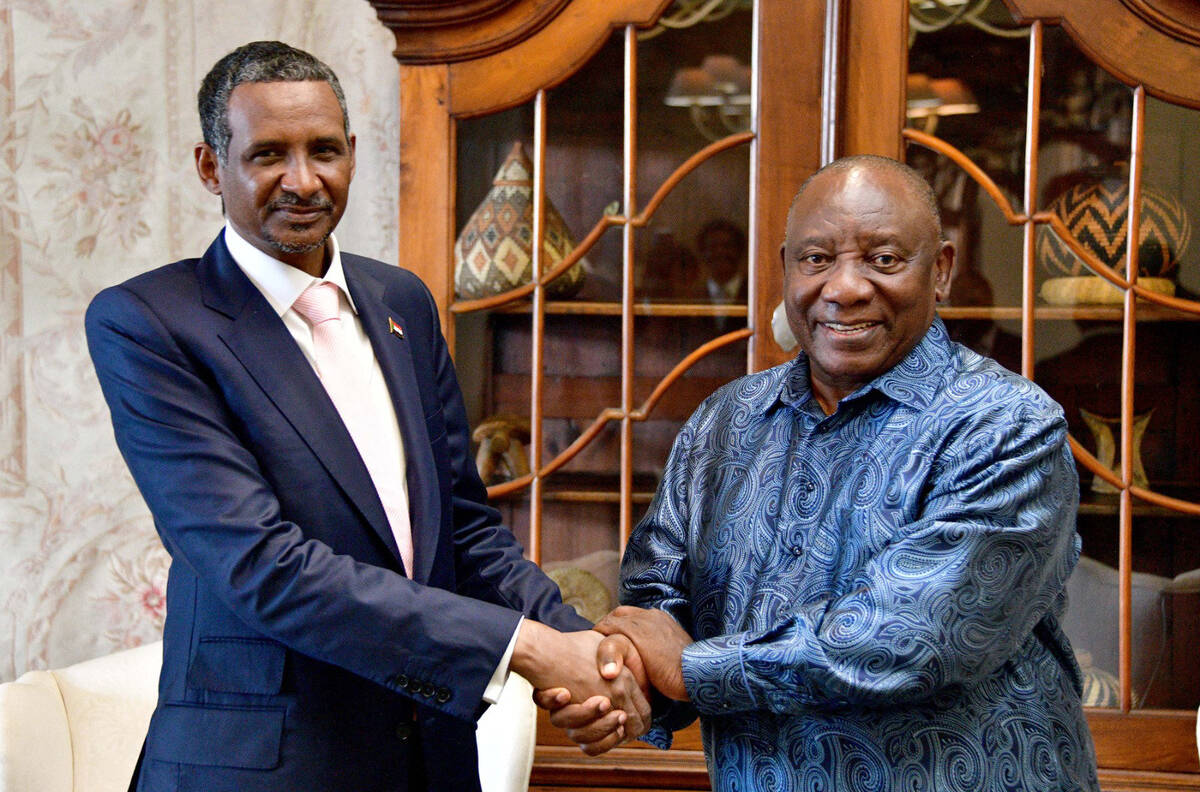
“The RSF has already established a parallel government,” said Deng. “They’re not disappearing. They have a base of power in Darfur, strong cross-border supply networks, and deep-rooted ethnic and regional dynamics backing them.”
She reminds observers that the RSF originated as a paramilitary force — evolving from the Janjaweed militias once backed by the central government — and has long been used to destabilize peripheries under the guise of counterinsurgency.
Abdelmoniem warns the SAF’s territorial gains may embolden it to pursue an outright military solution to the conflict. “Negotiations appear dead in the water,” she said. “SAF has political momentum now, and it would be naive to think that pushing the RSF into Darfur means an end to hostilities. We’re more likely to see Darfur become a sustained war zone again.”
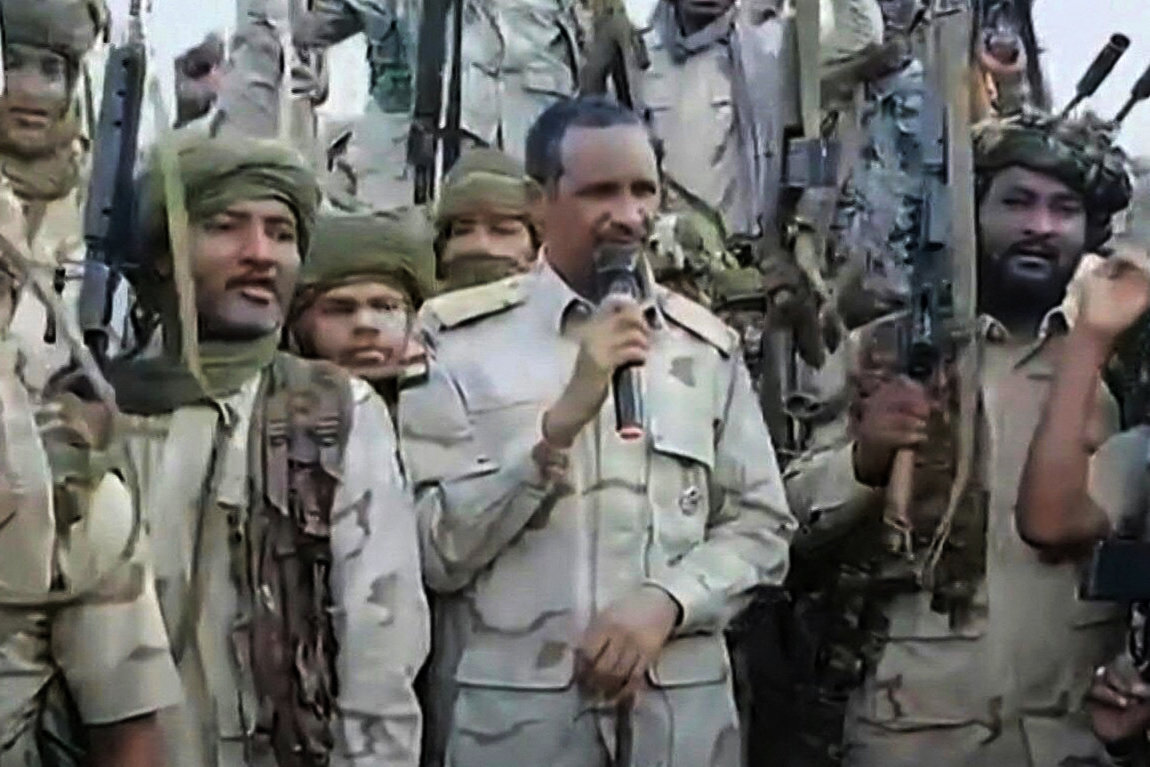
Even as the geography of the conflict shifts, the consequences remain grim for civilians. In Darfur’s Al-Fasher and Zamzam camp, where thousands are trapped in siege-like conditions, Vu describes haunting scenes of families trying to escape on donkeys under the cover of night — leaving everything behind.
“They’re too scared to take cars during the day because they could be arrested or attacked,” she said.
Access to these areas remains severely limited. “We must be realistic about the fact that both sides have obstructed aid,” said Deng. “But RSF-controlled areas are among the worst-hit. Famine conditions are spreading, and aid blockades are used as a weapon of war.”
Still, she says, international humanitarian organizations like the International Committee of the Red Cross and Medecins Sans Frontieres continue to engage with non-state actors.
“Groups like the ICRC or MSF operate based on neutrality, and the RSF knows that,” said Deng. “Sometimes access is possible — but it requires pressure, not just on the ground, but also on the states backing these groups with arms and logistics.”
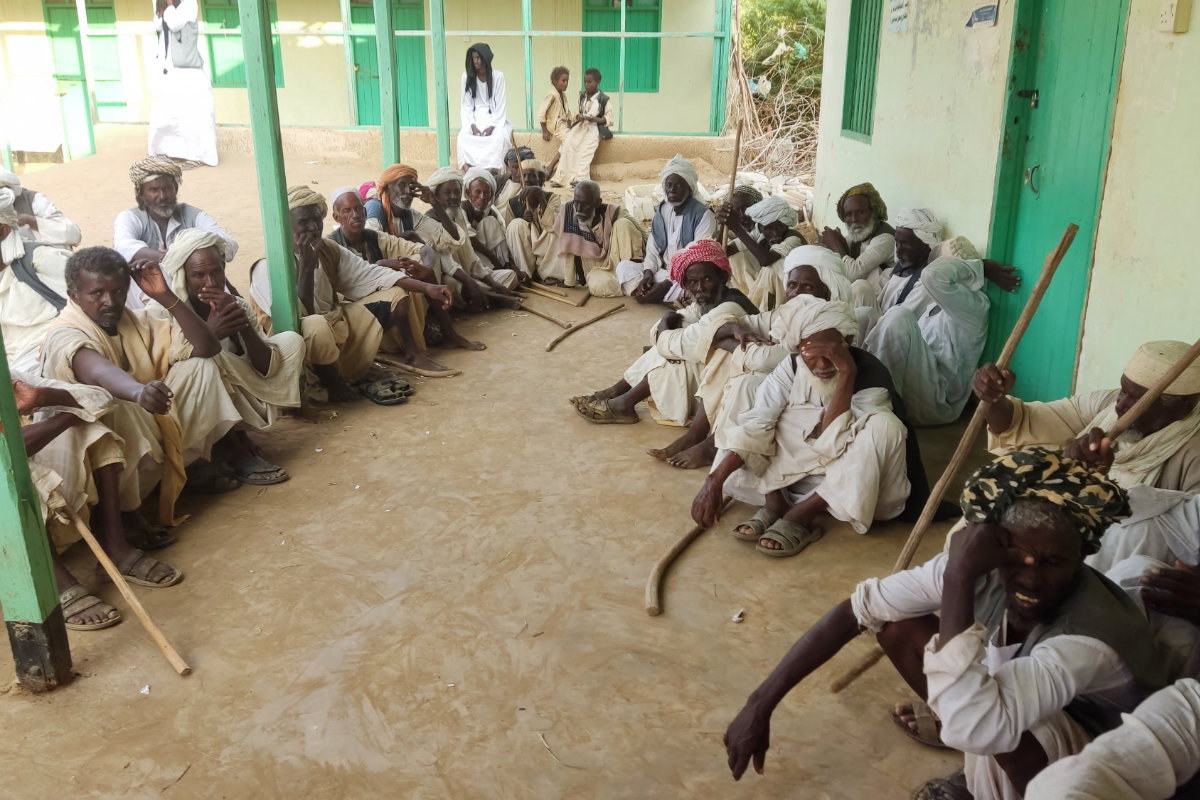

That pressure, so far, has been uneven. The international response to Sudan’s war has been widely criticized as inadequate, both in scale and in coherence. Vu underlines that while the world debates political solutions, people are starving.
“Humanitarian access must prevail, whether there is peace or not,” she said. “Aid should have no side.”
Meanwhile, SAF’s internal cohesion remains uncertain. Analysts have long warned of leadership fractures within the army and its allied militias. Deng points out that the SAF and RSF were not always rivals — they once operated in concert, often carrying out atrocities in Darfur and the south together.
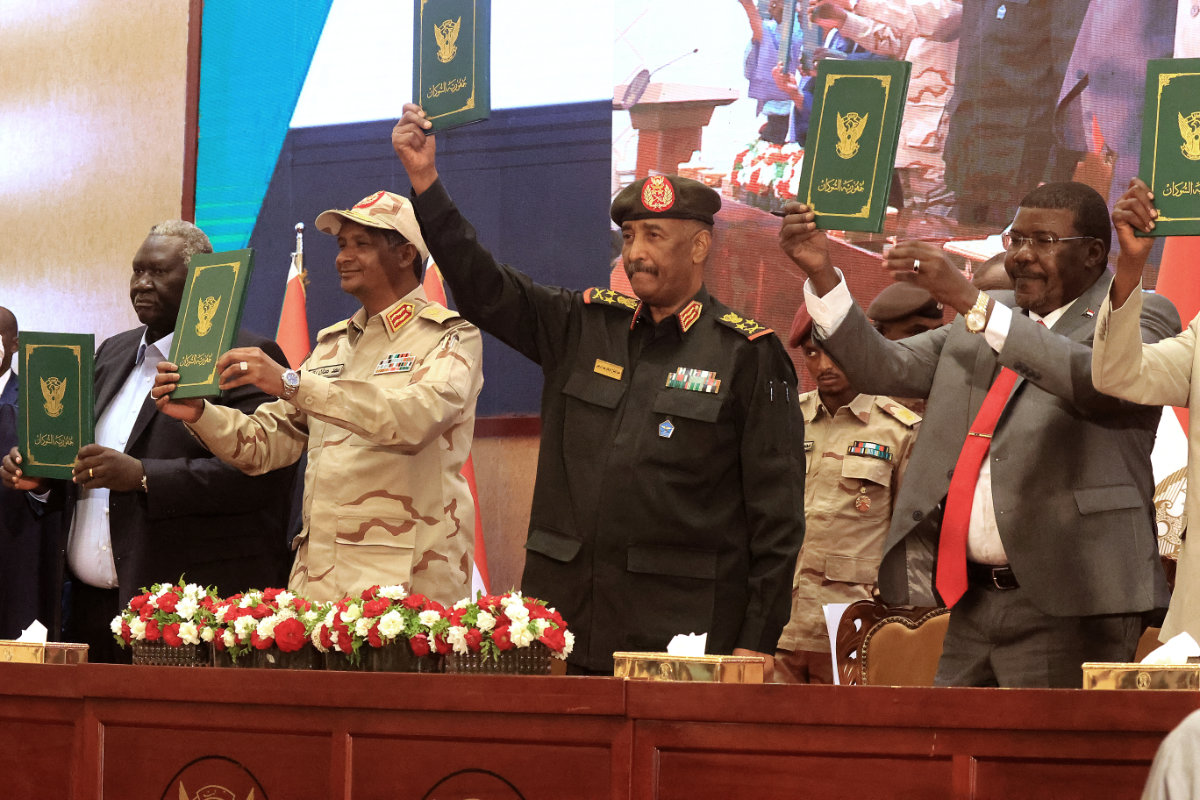
“Now they’ve turned those tactics on each other,” she said. “That a power vacuum would emerge inside the SAF is no surprise. Everyone wants to be seen as the legitimate inheritor of military authority.”
In the background looms a larger question: How much of Sudan’s war is about Sudan at all? “We’re entering an era where global geopolitics is less about rules and more about resources,” said Deng.
“Sudan manufactures its own weapons. It’s geographically pivotal. And it’s being drawn into the gravitational pull of multiple regional powers. That changes how this war plays out — and how it ends.”
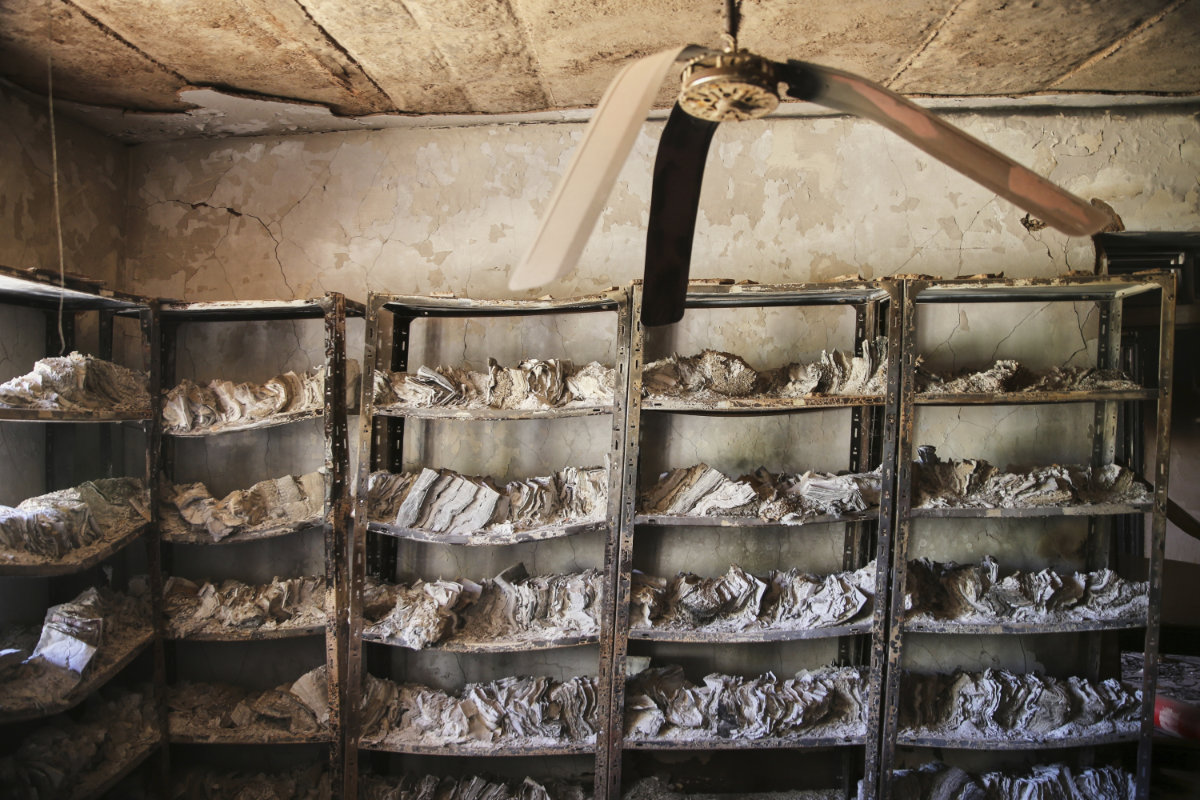

For now, Khartoum remains in limbo. The SAF may have reclaimed the city, but it has not yet won the peace.
Displaced civilians are navigating shattered neighborhoods. Aid might be trickling in, but it is far from sufficient. Across the country, war rages on in new theatres. And a political resolution, however desirable, feels no closer.
“The international community must increase pressure on the warring parties and their backers,” said Vu. “Without strong engagement, especially from countries with influence over SAF and RSF, aid will remain politicized and civilians will keep paying the price.”

Hamas says it accepts a new Gaza ceasefire proposal but Israel makes a counter-offer

- It was not immediately clear whether the proposal changed before Khalil Al-Hayyah, the leader of Hamas in Gaza, announced it had been accepted
- Frustrated by the threat to remaining hostages in Gaza, families and others rallied again Saturday evening to call for a deal that would bring everyone home
CAIRO: The Hamas militant group said Saturday it has accepted a new Gaza ceasefire proposal from mediators Egypt and Qatar, but Israel said it has made a counter-proposal in “full coordination” with the third mediator, the United States.
Egypt early in the week made a proposal to get the troubled ceasefire back on track, following Israel’s surprise resumption of fighting.
It was not immediately clear whether the proposal changed before Khalil Al-Hayyah, the leader of Hamas in Gaza, announced it had been accepted.
Early in the week, an Egyptian official described the proposal to The Associated Press, saying Hamas would release five living hostages, including an American-Israeli, from Gaza in return for Israel allowing aid into the territory and a weekslong pause in fighting. Israel would release hundreds of Palestinian prisoners. The official spoke on condition of anonymity because they were not authorized to brief media on the closed-door talks.
On Saturday, the office of Israeli Prime Minister Benjamin Netanyahu gave no details about Israel’s counter-proposal, which it said was offered after Netanyahu held consultations on Friday.
Israel a week and a half ago ended its ceasefire with Hamas by launching a surprise wave of strikes that killed hundreds of people. The White House blamed Hamas for the renewed fighting.
Israel has vowed to escalate the war until Hamas returns the 59 hostages it still holds — 24 of them believed to be alive. Israel also wants Hamas to give up power, disarm and send its leaders into exile. On Saturday, Israel widened its ground operations in Gaza’s southern city of Rafah near the border with Egypt.
Hamas has said it will only release the remaining captives in exchange for Palestinian prisoners, a lasting ceasefire and an Israeli withdrawal from Gaza.
Frustrated by the threat to remaining hostages in Gaza, families and others rallied again Saturday evening to call for a deal that would bring everyone home.
“The price of your war is the life of the hostages!” some protesters chanted in Tel Aviv. Minor scuffles broke out with police.
“War will not bring our hostages home, it will kill them,” Naama Weinberg, cousin of deceased hostage Itay Svirsky, told a weekly gathering of families in Tel Aviv.
The war in Gaza was triggered by Hamas’ Oct. 7, 2023, attack into Israel, in which Palestinian militants killed some 1,200 people, mostly civilians, and abducted 251.
Israel’s retaliatory offensive has killed over 50,000 people, according to Gaza’s Health Ministry, which does not say how many were civilians or combatants. Israel’s bombardment and ground operations have caused vast destruction and at their height displaced some 90 percent of Gaza’s population of over 2 million people.
Early this month, Israel again cut off all supplies to Gaza to pressure Hamas to accept new terms to the ceasefire that started in mid-January.
Israel had balked at entering negotiations over the truce’s second phase, which were meant to begin in early February. Under the agreement, phase two was meant to bring the release of the remaining 24 living hostages, an end to the war and full Israeli withdrawal from Gaza.
Misinformation, online hate speech fuels panic in South Sudan

NAIROBI: Misinformation and online hate speech are fueling panic and division in South Sudan at a time of acute political tensions that observers fear could drive the country back to war.
Ethnic divisions, particularly between the largest communities, the Dinka and Nuer, fueled the brutal civil war of 2013-18 in which some 400,000 people died.
After years of relative calm, there are worrying signs of renewed ethnic polarization, said Nelson Kwaje, chair of Digital Rights Frontlines, an organization based in the capital Juba that monitors hate speech and misinformation online.
FASTFACT
After years of relative calm, there are worrying signs of renewed ethnic polarization, said Nelson Kwaje, chair of Digital Rights Frontlines, an organization that monitors hate speech and misinformation online.
It comes as the 2018 peace agreement between President Salva Kiir and his long-time rival, First Vice President Riek Machar — who are respectively of Dinka and Nuer ethnicity — is hanging in the balance after Machar’s arrest on Wednesday.
He said mobile phone penetration in South Sudan is only 40 to 50 percent, and social media use around 10 percent at a conservative estimate.
However, those with access are often “the loudest voices,” and their messages spread through communities by more traditional means, helping poison the atmosphere.
Kwaje, speaking from Juba, said life in the city was still “relatively calm.”
But “social media disinformation and hate speech, which is very intense,” is stoking fears.
“There are rumors of assassinations, talk of retaliatory violence ... warnings about ethnic violence,” he said.
First, the brutal killing of an army general captured by members of a predominantly Nuer militia known as the White Army, and then a video appearing to show a young Dinka man being savagely treated by people with Nuer accents.
Ethnic polarization had reduced considerably in recent years, said Kwaje, but those videos have once again “radicalized people.”
“The polarization is obvious,” he said.
“If more incidents go in this direction, it will go to the next level of people taking up arms.”
“South Sudan has limited access to good information and free media. It creates a vacuum,” said Kwaje.
“The people who fill the vacuum are not all nefarious; many just want to share information to protect their community.
“But then you have actors who want to engage in fan engagement, and a small section who are politically motivated.”
He said it was hard to identify who was behind these political messages, but they were consistent and well-designed.
“When we see that level, we know there’s someone on a payroll,” said Kwaje.
“We have better shock absorbers now,” said Kwaje.
When the civil war broke out in 2013, there was an evident tribal divide “from day one,” he said.
The peace agreement that ended the war in 2018, “for all its faults,” engaged the international community, partially unified and disarmed Kiir and Machar’s respective armies, and installed an arms embargo that limited the supply of weapons to some extent, said Kwaje.
“Young people are also aware of the dangers of dividing along tribal lines. There is a lot of messaging about peace.
“But what pushes people to the edge is sharing content showing someone from your tribe being mistreated. Whether that content is factual or not, that immediately radicalizes you.”



















